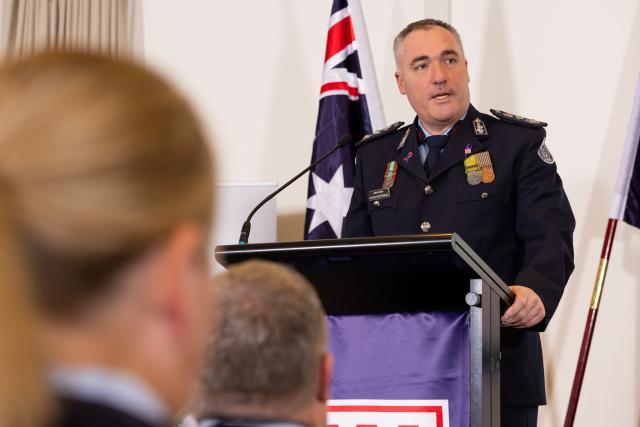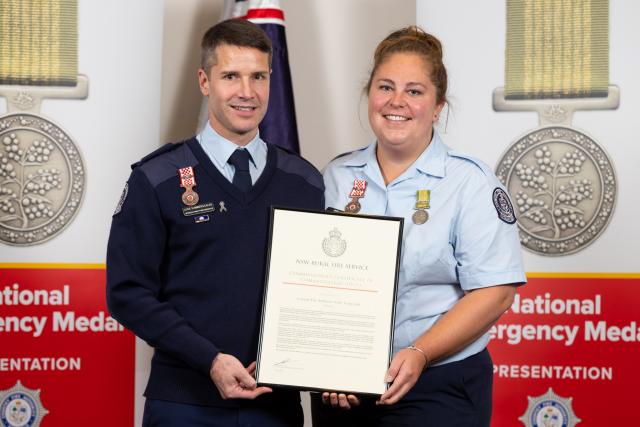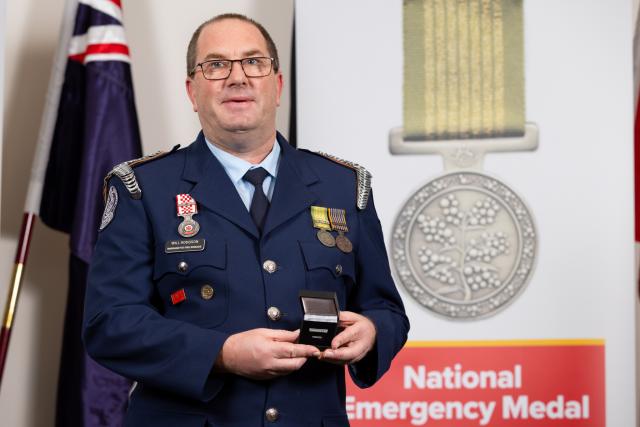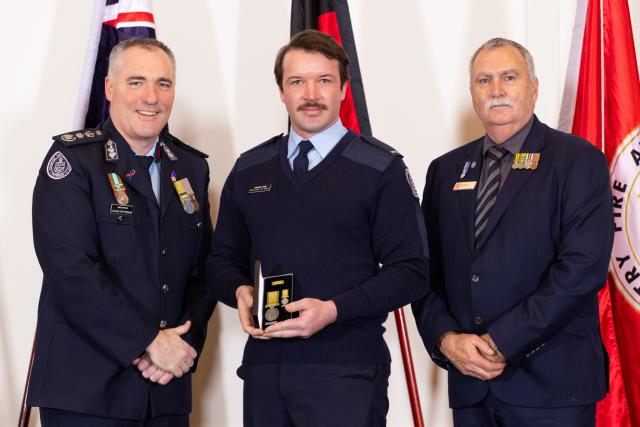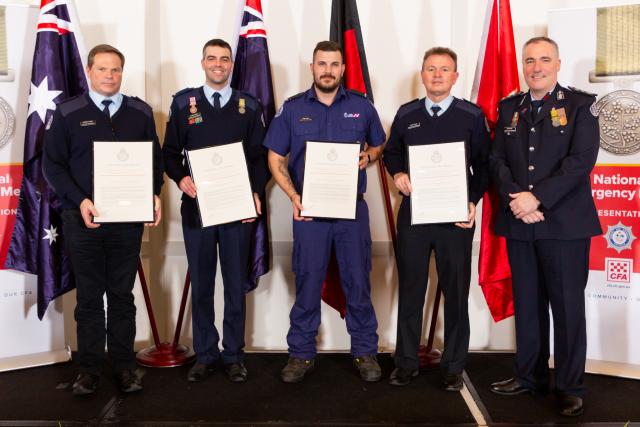
By Mikayla Van Loon
More than 100 firefighters from across the Yarra Valley and Maroondah group brigades were recognised with national medals for their involvement in the Black Summer bushfires.
On Sunday 23 July these firefighters, their families and CFA executives gathered in Chirnside Park for the National Emergency Medal ceremony.
Among the recipients were members from Badger Creek, Chirnside Park, Coldstream, Dixons Creek, Healesville, Lilydale, Mooroolbark, Mt Evelyn, South Warrandyte, Warrandyte, Wonga Park, Yarra Glen, Gruyere, Hillcrest, Hoddles Creek, Little Yarra, Reefton, Seville, Wandin, Warburton, Wesburn-Millgrove, Yarra Junction and Yellingbo.
Reefton CFA captain Sue Jack said having everyone in the one room really put into perspective how much of a contribution local brigades made during the 2019/20 fires.
“We were the last group in District 13 [to receive medals] but I reckon there must have been at least 100 volunteer firefighters and staff there who got their medals,” she said.
“It was great. To me it showed how much we contributed as a group, as a district as a response to those fires.”
Similarly Wonga Park CFA captain Aaron Farr said the “ceremony was lovely” and it was “good to get the recognition” and “community thanks”.
“Not that anyone who joins as a volunteer does it for the thanks or the awards but it is nice to receive the national recognition,” he said.
While Sue was the only brigade member from Reefton to receive the medal, Wonga Park had nine members receive the honours.
“The black summer fires, they were not like a Black Saturday, like a day, it was a whole summer that went on for months,” Sue said.
“When you think of all the firefighters in all the states and all the support people that go on behind the scenes that enable that to happen and all the families that are saying behind to support that to happen, it’s massive.
“For me personally, it’s very important. When you think of how that’s come about it was an important recognition of what collectively we have all done together and what we did and what we tried to achieve.”
Sue spent much of her time over those months in Orbost in the incident control centre as an incident management team member.
As a trained nurse, Sue was able to offer medical support to firefighters who had come from the frontlines.
“We looked after all the areas down to Mallacoota. So it was very busy and there was a lot obviously going on in that space at that time,” she said.
“My role was to go out and make sure the health and wellbeing of the firefighters was being looked after and monitor their carbon dioxide levels and make sure they had first aid available.”
For the first time Sue was tasked with organising the equipment and medical staff for one of the firefighting planes, ensuring oxygen tanks, the crew and medical supplies would all fit inside the aircraft.
“It was a good learning curve for me. So lessons learnt for next time, I know what I need to do and how it needs to happen.”
From medical support to medical emergency, Aaron said for some of his brigade members who responded in NSW as part of strike team 1304, the unthinkable happened.
“One member went into cardiac arrest and he was resuscitated and saved onsite,” he said.
“He has recovered completely and is living a full life.”
The members involved did also receive a commissioner’s citation for helping to save a fellow member’s life.
Aaron said throughout the summer months many of Wonga Park’s volunteers were stationed in the East Gippsland region.
“Our main involvement was in East Gippsland, in the Buchan area and we supplied trucks and a big fill appliance,” he said.
“From November through to February or March we had constant rotations and deployments of five days, with members filling admin roles or on the ground support.
“The majority of the brigade contributed in one way or another.”
Some of those members gave up to 20 or 30 days in total, relying on unpaid or annual leave, something Aaron said should be commended in itself.
For Aaron, recognising the people who stayed back home to protect the local area was also important to acknowledge.
“People still put their hands up locally. We can’t not have coverage locally, so no one goes unless our patch is also protected.”
Not only is it the members who stay behind, but Aaron said for a major response effort like that seen in 2019/20, it meant a lot of families were disrupted.
“We leave at the drop of the hat, so the work of the families who allow their family members to go and have to take on the extra school pick ups or making dinner is really important,” he said.
With criteria set for those who can receive a National Emergency Medal, Sue said it’s important to remember not everyone gets the honour.
“I’m so happy about getting a medal like that, it’s a once in a lifetime kind of thing. Those fires were a collective effort, there were so many people and not everybody got a medal,” Sue said.
“So many people contributed to help communities in those fires and so many people behind the scenes, that I call support organisations.
“From a community perspective, we often don’t think about what goes on, you see the boots on the ground and the yellows, the firefighters but there’s so much more to it.”

